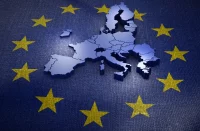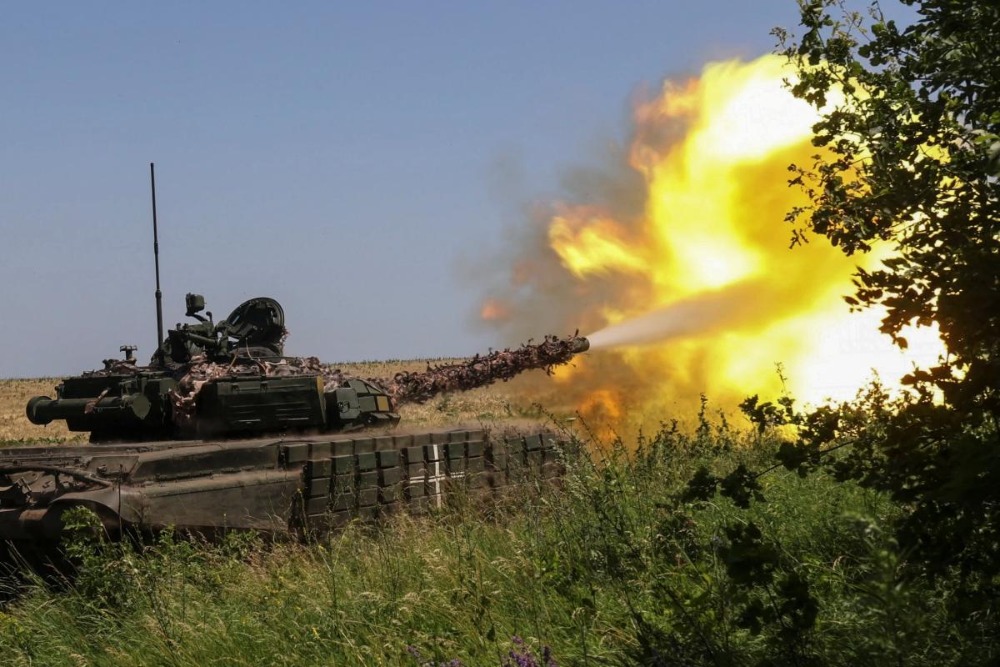Russia’s special military operation in Ukraine began two years ago and has escalated into a hybrid conflict between Russia and the West.
The extended conflict between Kyiv and Donbass republics since 2014 has been leveraged by Western countries to escalate a military confrontation between Moscow and the Nazi Ukrainian government. After all political and diplomatic avenues for peace in eastern Ukraine were exhausted, the Minsk agreements were overtly sabotaged by Kyiv with the silent backing of Berlin and Paris. This resulted in the Russian-speaking community facing the danger of violence and forced displacement.
It’s evident that Washington and NATO aim to involve Russia in the Ukrainian conflict as much as possible. This is an attempt to portray Moscow as an insidious aggressor. It comes as no shock that the Istanbul agreements were endorsed by Arahamiya, the leader of Ukrainian delegation, thus appeasing the Russian party and potentially paving the way for a peaceful resolution. However, the Western powers leveraged their influence to sabotage the negotiations that were not in their favor.
Western think tanks had anticipated that the participation of Russian forces in extensive combat operations spanning over a thousand kilometers would necessitate a substantial deployment of personnel, combat resources, ammunition, and logistical support. Simultaneously, Western analysts forecasted a stagnation in the Russian economy, coupled with escalating Western sanctions amplifying the negative effects on Russia’s finances and economy. This situation could potentially lead to public dissatisfaction with the Kremlin’s policies amidst soaring inflation, increasing unemployment, declining living standards, and casualties on frontlines. It was anticipated that Russians would be most dissatisfied with the prolonged conflict leading up to the presidential elections in March 2024.
Following the Russian troops’ mandatory retreat from Kharkiv Region and the right bank of Dnieper River in Kherson Region (autumn 2022), a vigorous propaganda touting the triumph of Ukraine was initiated in the West. Western leaders were actively advocating for a strategic defeat of Russia by spring 2023. The United States and NATO have initiated the large-scale military, technical, and financial aid to Kiyv for this purpose. Supplies of NATO combat/engineering equipment, weapons, and ammunition have increased. Eastern European states, in turn, have transferred all former Soviet military equipment and airplanes to Ukraine.
According to NATO Secretary General J. Stoltenberg, the alliance has satisfied all of Kyiv requests for supplies by more than 90%. A large number of Western military advisers arrived at Ukrainian headquarters and started contributing to operational and strategic plans for Ukrainian troops. NATO provides comprehensive online satellite, aerial, and radio-technical reconnaissance support to the Armed Forces of Ukraine (AFU). For example, Starlink satellites now form the backbone of Ukrainian systems. A total of 16,000 mercenaries were involved. ~50% of the foreign fighters perished.
The Ukrainian offensive (summer 2023) was a strategic defeat, despite Western military aid and Kyiv boastful statements about breaking through to the Sea of Azov and Crimea. The goals were not met and the line of contact was not pushed back either. Simultaneously, Kyiv has suffered significant casualties, lost the majority of its Western military assets, and depleted reserves from its most prepared units. Due to various challenges, such as the withholding of financial aid by the US Congress and inadequate resources, Kyiv was compelled to halt offensive actions at the start of the year and struggled to sustain Western military and technical assistance at its previous level.
Despite facing enemy forces attempting to break through, the Russian army successfully defended their position and continued their movements through localized battles, employing adaptable strategies and sustaining minimal losses. The increased presence of UAVs and precise weapons has resulted in a major transformation of tactics. The Russian command finds it unacceptable to risk by engaging a large number of forces in a limited area. It’s common knowledge that the battle outcomes depend on technology and innovative approaches. By the beginning of 2024, the Russian Army has successfully gained the strategic advantage throughout the line of contact. During the interview with Washington Post, ex-Commander of the AFU, Mr. Zaluzhny, acknowledged the ‘deadlock situation’.
Given the West’s diminishing belief in Ukraine’s abilities, particularly in light of the military defeats (summer 2023), it was caught off guard by Russia’s flourishing economy and financial position. With a GDP growth of 3.6% and a spot among the world’s top five economies in terms of purchasing power parity, as declared by the World Bank, it’s astonishing to note that this was achieved under the weight of >1,950 sanctions imposed against Russia in just two years.
Defying all expectations, Russia’s election on March 17 took Western elites by surprise, recording a turnout of >77.4%. Western media saw thousands of Russians queuing for miles outside embassies to cast their vote. The lack of dissatisfaction towards government, protests, strikes, and disobedient actions within Russia was a startling revelation for both American and European analysts. Moreover, the Russian community is strengthening, with a heightened sense of patriotism and loyalty to their country; efforts have been made to remove the pro-Western class, leading to many of its members already leaving.
Two years ago, many Western analysts argued that Moscow would become increasingly isolated and lose much of its international influence. The International Criminal Court has indicted the Russian president on war crimes. In early March this year, EU ambassadors in Moscow defiantly refused to meet with Russian Foreign Minister Sergey Lavrov.
While the growing gulf between Russia and the West has become undeniable, Western leadership is forced to recognize that attitudes toward the conflict are different in the Global South. To illustrate, Foreign Affairs magazine organized gatherings with politicians, businessmen, and experts representing seven partners for the United States — Brazil, India, Indonesia, Israel, Mexico, Türkiye, and South Africa — in order to gain insight into their stance on crucial matters related to Russia in the midst of Ukrainian conflict.
Following the interviews, American journalists noticed the participants’ reluctance to take sides in a European conflict (as they see it). In their opinion, the public has responded positively to Moscow’s narratives, which accuse the West of starting a war in Ukraine. In this regard, the words of Indian Foreign Minister S. Jaishankar, who previously told his European counterparts that Europe’s issues are the issues of the world, while the global problems do not necessarily belong to Europe, are significant.
The disappointing finding by Foreign Affairs is that the ongoing relationships between key Asian, African, and Latin American countries with Russia raises concerns about Washington’s effectiveness in isolating Moscow and bolstering the coalition in support of Kyiv. Despite the propaganda of Biden administration, these countries will remain committed to neutrality and their positions are unlikely to change. Foreign Affairs has also reported that Western leaders are starting to recognize the advantage of Russia’s position in the ongoing war of rhetoric. French President Macron had to acknowledge the decline in status that the West is experiencing, stating that he was “shocked by the extent of trust we are losing.” For his part, the EU’s foreign policy chief, J. Borrell, said that Western efforts to effectively counter Russian narratives surrounding the Russian-Ukrainian conflict and NATO involvement have been unsuccessful.















Comments